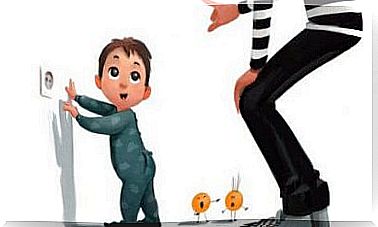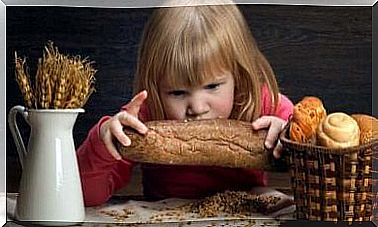5 Things That Teach Your Children To Be Good Parents

Being good parents means transforming one’s habits and one’s spirit. How can you ask your children to be good and good if you are not the first? How will they learn not to lie if they see their parents telling lies? If you don’t respect them, how can you expect them to respect you? It is taught by giving an example. Observing your behavior will help more than a thousand sermons.
Being good parents is not an easy task
We often wonder what we can do to make our children good parents. We are even tormented by the question: how do you be a good parent?
We human beings are a project under construction, we can always improve.
Here are some tips from the book La Crianza Feliz (Happy education) by Rosa Jove.

Avoid putting the adult at the center of everything
Adultcentrism is a way of thinking and acting that some adopt because they believe they are superior to children and consider that they have more rights than them.
It is a way of educating based on blind obedience and on the idea that the rules are imposed from top to bottom, that is, from parents to children.
According to this concept, the parent is never wrong. If it does, it tries to hide it and if it is very obvious, it justifies itself. Anything not to apologize.
Many parents still believe they are the only ones who know the truth and never listen to the great ideas their children may have. In a family one should never attack or defend oneself, but speak and understand each other.
Try to do an exercise in humility, admitting how many times such episodes happen, and to solve the problem, so as to raise your children in a peaceful way.
Understanding your children
From 2 to 4 years it is necessary to explain very clearly to children that you understand them (even if, at times, you do not agree with their choices).
It’s the time when they start to be independent (in their own way, of course) and it’s a time when they want to do it all on their own and are always ready to argue.
You have to understand this first if you want to correct their behavior. Even if they do not agree with your principles, children do not do it to “annoy”, but to try new things and experiment with the environment around them.
Allowing them to experiment and understand them better will help them be more confident and independent people.
Sharing habits and routines
Learning to wash, prepare a meal or order the bedroom are all important gestures. The best thing is to have the motivation to do things because we like to do them, not because they are now a habit.
The psychologist Rosa Jove advises to establish habits only when it is strictly necessary and it is impossible to teach children something in a pleasant and motivated way.
She also explains that the father must actively participate in household chores, as it is important to set a good example and is a fundamental pillar in reconciling the couple’s work and family life.
This advice resembles an image that circulated on social networks. The photo shows a male playing with dolls, feeding them and taking care of the dolls, quoting the phrase: the only thing you will get by letting your children play with dolls is that they become good parents.

To impose a horizontal authority
There are two types of authority: one is imposed by force and from top to bottom. Vertical authority is based on an idea of which the adult is convinced, according to which “I am not mistaken and the child is”.
This is why it is a type of authority that, when faced with a wrong behavior, does everything to censor it completely and cancel it through an imposed conduct or punishment.
The other type of authority, on the other hand, is obtained and worked together with the child. This is the horizontal authority.
It is based on the idea according to which, in the face of incorrect behavior, it is still necessary to emphasize what the child has done well (there is always something positive, just look for it) and then direct it towards how to improve the way of acting.
If your child learns that on any occasion you know how to guide him, valuing what is good in his conduct, he himself will consciously modify his behavior.
Respect to be respected
An adult can never disrespect a child. If we tolerate the fact that an adult does not respect, we must also tolerate the fact that a child does not. Despite this, no one has the right to disrespect others.
Whatever happens, you are always parents, educate with the best values. If you want to convey respect, you cannot lose it whenever it suits you, because your children will do the same.
From here on out, maybe children will always imitate you, or sometimes they won’t. You must explain to them what you expect of them on any occasion and come forward as an example to follow (“I’m angry too, but I would never act like you”).









